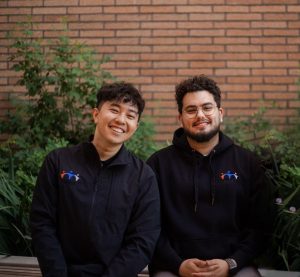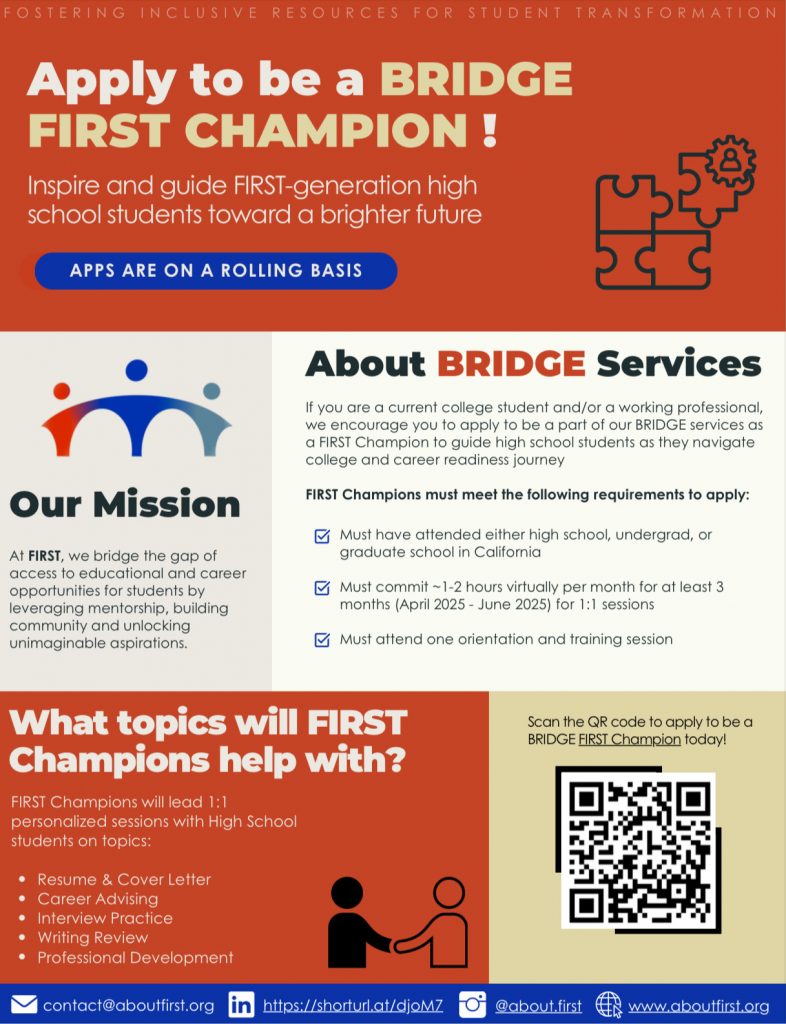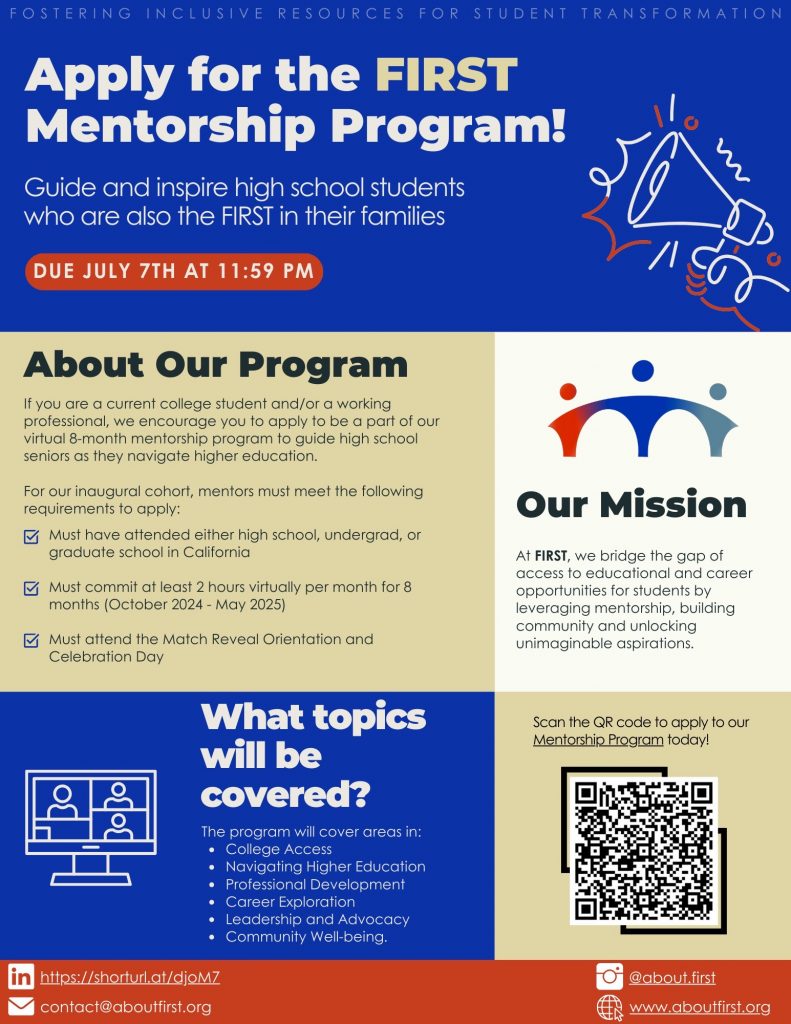UW MHA alumni Imad Jobah and Tony To co-founded FIRST, a non-profit supporting first-generation students through academic and professional mentorship. Their story shows how the UW MHA program equips students to lead impactful, equity-driven initiatives beyond health care.

After graduating from the University of Washington’s Master of Health Administration program, Imad Jobah had a transformational experience that led him to create the non-profit FIRST- Fostering Inclusive Resources for Student Transformation.
With the mission of bridging the gap of access to educational and career opportunities for students, FIRST prioritizes providing mentorship opportunities for first-generation students along with other community-building services. Upon starting FIRST, Jobah connected with fellow MHA classmate Tony To to be a Co-Founder of the organization.
We spoke with Imad and Tony about the creation of FIRST, what’s next for the organization, and how their experience in the UW MHA program was pivotal for this journey.
Q: What inspired you to create FIRST?
A: After graduating from the University of Washington with my MHA degree, I returned to California for an Administrative Fellowship. During this time, I served on a committee that provided scholarships to underserved high school students. Their stories, filled with dreams and resilience as first-generation students deeply affected by the pandemic, resonated with me. As a first-generation student myself, I reflected on how crucial mentorship was in shaping my own path.
That reflection sparked the idea for FIRST, a non-profit organization that supports first-generation high school students through mentorship, with plans to expand into scholarship funding to assist them in their pursuit of higher education.
FIRST became a collective vision by a network of diverse leaders to help first-generation students succeed in their career and personal aspirations. With the opportunity to partner with fellow MHA classmate and co-founder, Tony To, we hope to continue to build momentum for our non-profit as we believe that FIRST means pioneering paths, breaking barriers, and embracing the thrill of venturing into the unknown.
Q: What need does FIRST specifically address and how?
A: FIRST addresses the critical need for mentorship early in one’s academic and professional journey, particularly for first-generation students who often lack guidance navigating higher education. High school is a pivotal time when students are making life-shaping decisions—choosing majors, applying for financial aid, and moving away from home. Many first-generation students face these challenges without a mentor to guide them.
FIRST bridges that gap by providing mentorship from people who’ve walked similar paths and want to pay it forward. The sense of community created through mentorship is only the beginning, as we hope to become a hub of services that can address the systemic challenges faced by first-generation students across the country.
Q: What are the next steps for FIRST?
A: Currently, FIRST pairs high school students with college students or professionals for one-on-one mentorship, matching them based on career interests, academic goals, demographics, and location. We also offer bimonthly virtual events, workshops, and webinars on topics ranging from college applications to career exploration.
Moving forward, we aim to partner with community organizations and youth programs to expand our services and reach for students. Additionally, we are focused on fundraising to build our scholarship fund, which will provide financial assistance to high school students pursuing higher education.
Q: How did your experience in the UW MHA program help prepare you for starting FIRST? What classes or skills taught in the program helped?
A: Absolutely. The UW MHA program equipped me with essential skills within courses in leadership with Bob Malte, strategy with Sarah Cave, finance with Dennis Stillman, and group dynamics/consulting with Kurt O’Brien.
Most importantly, it was the opportunity to collaborate with like-minded individuals within the program that highlighted the importance of establishing trust and building relationships to advance shared goals.
Leading FIRST has required me to apply these skills in real-time—whether it’s leading a team of seven dedicated volunteers, sustaining our operations financially, or creating strategic plans to grow our impact. In working with Tony, similarly to how it was at the program, it is amazing to see how the skills taught by the faculty have led us to execute upon the vision of FIRST. The program’s focus on equity has also shaped my leadership approach, ensuring that inclusion and access are at the heart of every decision we make at FIRST.
Q: How does it feel to have launched this non-profit?
A: I’m incredibly proud and honored to have started FIRST. Becoming a 501(c)(3) wasn’t easy, but I owe a huge thanks to our inaugural leadership team and my network of supporters who have been instrumental in this journey. FIRST is about empowering the next generation of leaders, and I’m grateful to be part of an organization that strives to make a lasting difference in their lives.

